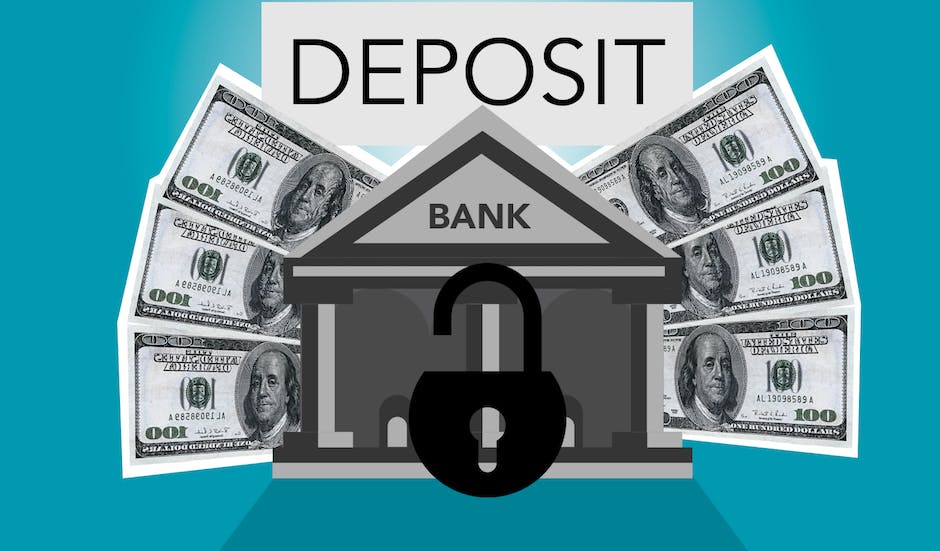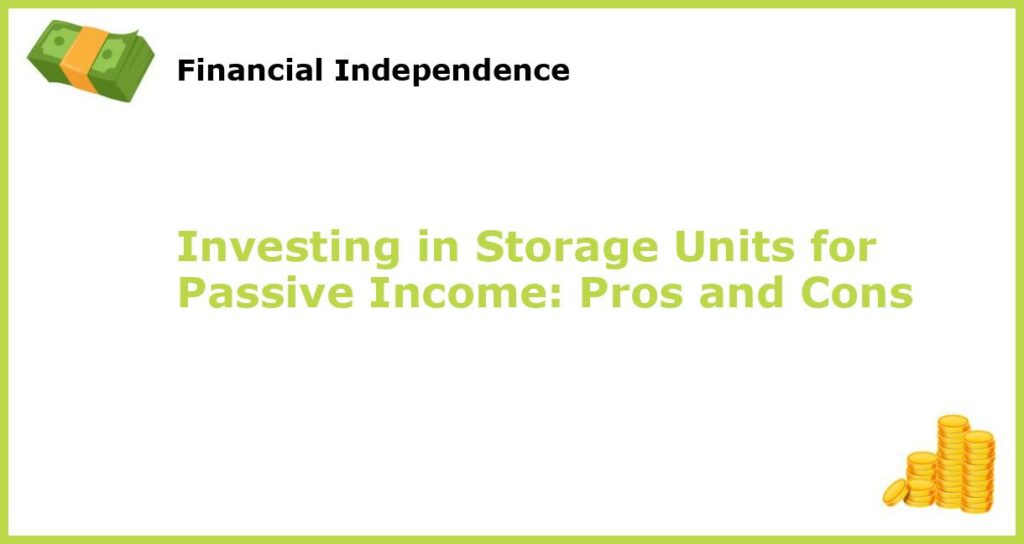Are you looking for a way to earn passive income? Investing in storage units may be just what you need. It is a lucrative investment that can provide a steady stream of income. Moreover, if you are interested in diversifying your investment portfolio and are looking for a hands-off investment, investing in storage units may be the right choice for you. However, before you take the plunge, it is important to consider both the pros and cons of investing in storage units.
Pros of Investing in Storage Units
Diversification

One of the main advantages of investing in storage units is that it can provide diversification within your investment portfolio. This investment is an alternative that is not associated with the stock market or other traditional investments. Should the stock market plummet, your storage unit investment is unlikely to be affected, and you could still reap the rewards. Moreover, investing in storage units could enable you to establish a substantial passive income flow, resulting in less dependence on traditional investments over time.
Low Maintenance

If you are not fond of hands-on investments, storage units may be the way to go! They require little maintenance once set up. You will not need to invest capital in regular upkeep or renovation, making it an attractive option for passive investors who want to capitalize on lucrative investments while remaining hands-off.
Long-term Tenants

Another benefit of investing in storage units is that they usually have long-term tenants. That means that you can expect to have a stable income stream for a more extended period, and you wouldn’t have to worry about finding new tenants regularly. As a result, this type of investment is ideal for those who want to establish a passive income stream for an extended period, without the hassle of rental properties or any other type of high maintenance investment.
Cons of Investing in Storage Units
Upfront Capital

One of the most significant disadvantages of investing in storage units requiring extensive capital is acquisition, building, and maintenance costs. For some investors, this capital may be difficult to raise or out of their budget, and it could take several years to start seeing returns on investment. Investing in storage units should, therefore, be a well-thought-out decision that considers every aspect, ensuring that you are ready for this long-term commitment.
Competition

While storage units are high in demand, they also have a lot of competition in the industry. As a result, investors may have to invest in marketing and advertising to attract tenants to their units, which can add to the expenses. While this is a disadvantage, it can also be an opportunity to distinguish your investment from others, and make it more appealing to potential tenants, thus investing in unique equipment and security measures can provide an edge in a crowded market.
Unforeseen Costs

Another disadvantage of investing in storage units is the unanticipated expenses associated with owning and maintaining the units. In case a tenant damages the units or something crops up, investors should be prepared to bear the financial burden consequently making this investment less suitable for the faint-hearted, who dislike such uncertainties.
Saturated Markets

In some markets, there may be an oversaturation of storage units. This could affect the investor’s ability to find tenants and generate income from their units. Before investing, therefore, thorough research is required to understand the market demand and determine whether it is worth the investment.
Is Investing in Storage Units Right for You?
The decision to invest in storage units should be considered based on whether you have the capital to invest in acquiring and building units and whether you’re prepared for the possible expenses associated with maintaining them. You also need to be comfortable with the competition in the industry and the potential market saturation.
If you are looking for a hands-off investment with long-term tenants and diversification within your investment portfolio, then investing in storage units may be the right fit. However, it would be best if you took a cautiously optimistic approach since this type of investment is not suitable for everyone. Before making a decision, conduct thorough research, weigh the pros and cons, and then make an informed decision geared towards your investment goals and financial capability.







